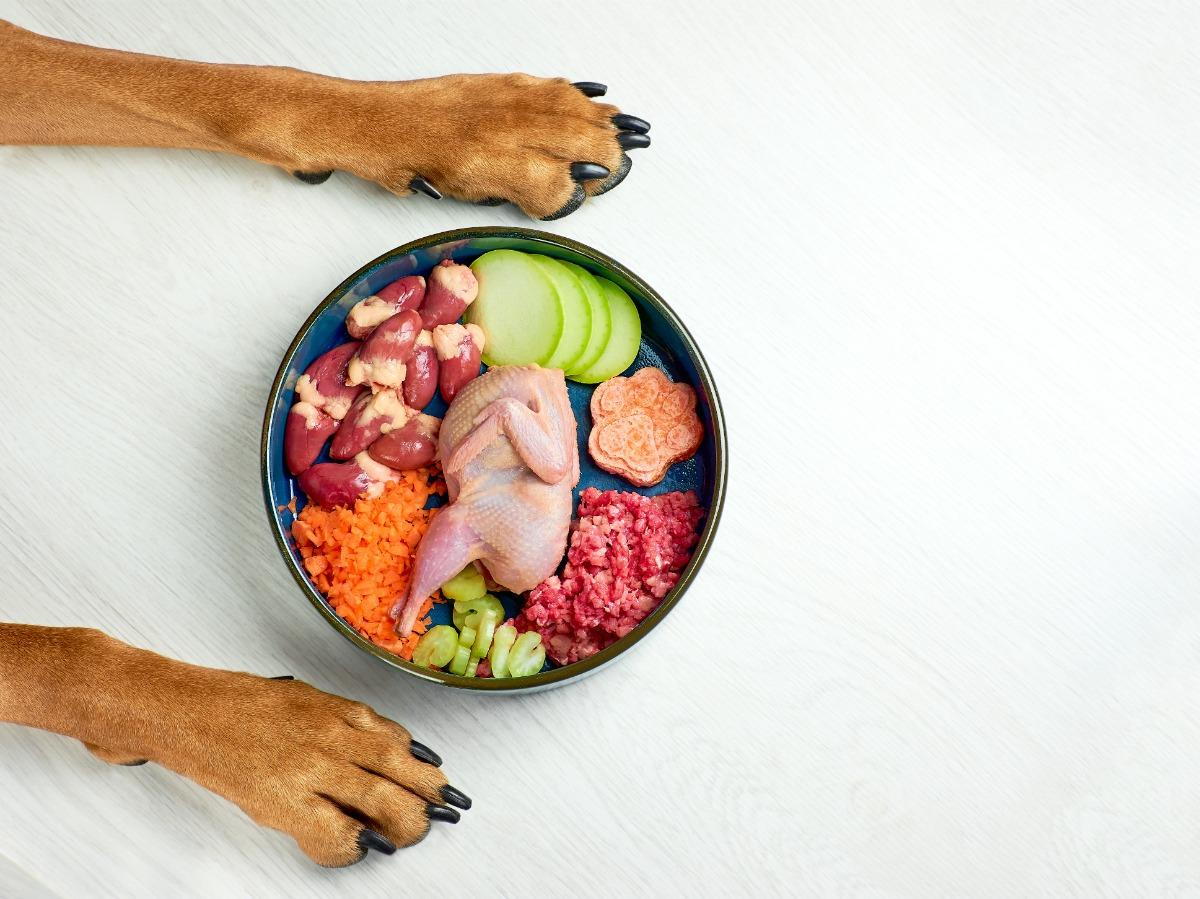Ensuring your furry friend receives a well-balanced diet is a cornerstone of responsible pet ownership. Just like humans, dogs thrive on a diet that carefully balances proteins and carbohydrates to maintain optimal health and vitality. In this article, we’ll explore the essential role these nutrients play in your dog’s diet and provide practical tips to help you create a nutritious meal plan tailored to your dog’s unique needs. Whether you’re a seasoned pet parent or new to the world of canine care, our guide aims to offer a warm, reassuring approach to nourishing your beloved companion, ensuring they enjoy a happy, healthy life by your side.
Understanding Your Dogs Nutritional Needs
Ensuring your dog receives the right balance of protein and carbohydrates is essential for their health and vitality. Dogs, much like humans, require a diverse diet to thrive. Protein is crucial for building and repairing tissues, supporting immune function, and maintaining lean muscle mass. On the other hand, carbohydrates provide a quick energy source and are important for digestive health.
- Protein Sources: Opt for high-quality proteins such as chicken, beef, fish, or lamb. These sources provide essential amino acids that are vital for your dog’s well-being. For a plant-based option, consider lentils or chickpeas.
- Carbohydrate Choices: Include wholesome grains like brown rice or oats, and don’t shy away from vegetables like sweet potatoes and peas. These options offer fiber and other nutrients beneficial for your dog’s digestive system.
It’s important to remember that every dog is unique, and their dietary needs can vary based on their age, size, and activity level. Regularly consult with your veterinarian to tailor a diet plan that best suits your furry friend’s individual needs. By prioritizing a balanced intake of protein and carbs, you ensure your dog stays healthy, energetic, and happy.

Choosing the Right Protein Sources for Optimal Health
Ensuring your dog receives the best nutrition requires understanding the delicate balance between proteins and carbohydrates. Protein is crucial for muscle development, immune function, and overall vitality, while carbohydrates provide the energy needed for daily activities. When selecting protein sources, consider options that are both high-quality and easily digestible. Some excellent choices include:
- Chicken: A lean source of protein that is gentle on your dog’s digestive system.
- Beef: Packed with essential amino acids, beef supports muscle growth and repair.
- Fish: Rich in omega-3 fatty acids, fish promotes a healthy coat and skin.
- Eggs: An excellent source of complete protein, providing all essential amino acids.
- Lamb: A great alternative for dogs with sensitivities to more common proteins.
Balancing these proteins with healthy carbs like sweet potatoes, brown rice, and quinoa can ensure your dog gets the energy they need without unnecessary fillers. Always aim for a varied diet to provide a wide range of nutrients, keeping your furry friend healthy and happy.
Balancing Carbohydrates for Energy and Vitality
When crafting a balanced diet for your furry friend, it’s crucial to understand the symbiotic relationship between proteins and carbohydrates. Both play essential roles in maintaining your dog’s energy and vitality. Proteins are the building blocks for muscles, tissues, and cells, while carbohydrates serve as a primary energy source. To ensure your dog gets the best of both worlds, consider the following guidelines:
- Choose high-quality proteins: Opt for lean meats like chicken, turkey, and fish, which are not only rich in amino acids but also easy to digest.
- Incorporate whole grains: Brown rice, oats, and barley are excellent carbohydrate sources that provide sustained energy and essential nutrients.
- Monitor portion sizes: Balancing carbs and protein isn’t just about quality; it’s also about quantity. Adjust the portions based on your dog’s size, age, and activity level.
- Rotate protein sources: To prevent allergies and ensure a variety of nutrients, try rotating different protein sources in your dog’s diet.
By thoughtfully balancing these nutrients, you’ll not only support your dog’s physical health but also their overall well-being, leading to a happier, more energetic companion.
Crafting a Tailored Meal Plan for Your Furry Friend
Ensuring your dog’s diet is well-balanced is crucial for their overall health and vitality. When crafting a meal plan, it’s important to strike the right balance between protein and carbohydrates. Protein is essential for muscle development, tissue repair, and energy. Consider including sources like:
- Lean meats such as chicken, turkey, or beef
- Fish like salmon or mackerel, which are rich in omega-3 fatty acids
- Eggs, a complete protein packed with essential amino acids
On the other hand, carbohydrates provide energy and fiber, supporting digestion and metabolic function. Opt for healthy options like:
- Sweet potatoes or regular potatoes, which are both digestible and nutritious
- Brown rice or quinoa, offering a great source of fiber and essential nutrients
- Vegetables such as peas, carrots, and pumpkin, which can be easily mixed into meals
When designing your furry friend’s diet, ensure that proteins make up about 25-30% of their meal, with carbs filling the remaining portion. This balanced approach will help maintain your dog’s energy levels and overall health, while keeping their tail wagging happily!

